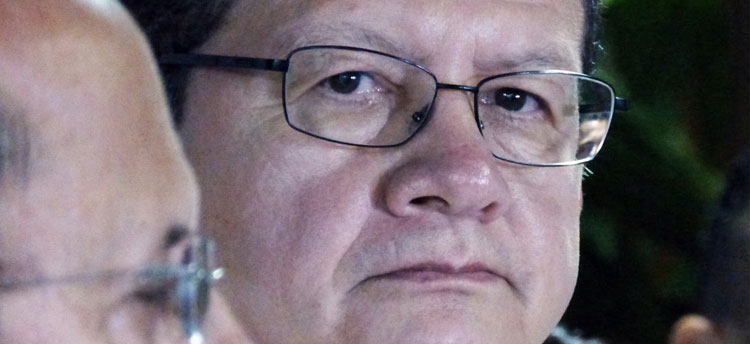Colombia’s largest rebel group, the FARC, on Tuesday warned that ahead of a ceasefire beginning on Sunday there might be more attacks like the one that killed nine in the southwest of the country on Saturday.
In a radio interview, FARC peace negotiator “Pablo Catatumbo” clarified that while the rebels’ unilateral ceasefire is in place, the war between the guerrillas and the state continues, and more victims might fall.
“There is an armed conflict each day,” said Catatumbo, explaining that consequently “from today until December 15, unfortunate events can occur. What war breaks out, it breaks out.”
According to the FARC commander, Saturday’s bloody attack on the town of Inza and Sunday’s announcement of the upcoming ceasefire were not coordinated to occur in that order.
Catatumbo, whose real name is Jorge Torres, stressed that violence like that in Inza is exactly the reason why peace talks are necessary.
“We have also lost people. We lost [former supreme commander] ‘Alfonso Cano’ and we move on. This is why the declaration [regarding the upcoming ceasefire] and the attack in Inza have nothing to do with each other,” the FARC negotiator said.
Catatumbo called on fellow guerrilla fighters to “remain alert for any enemy operation” while abandoning the offensive — the FARC previously said it will continue to use violence in self-defense.
The government announced it would continue counter-insurgency operations during the ceasefire.
The announced ceasefire is the second since peace talks began in November last year; The FARC announced a similar unilateral cease of hostilities for December last year, during which guerrilla attacks dropped to almost zero.
Negotiating teams of the rebels and the Colombian government have so far agreed an agrarian reform and the FARC’s political participation, the first two points of a six-point agenda. The remaining four points include the rebels’ involvement in drug trafficking, victim reparation and the logistics of disarmament.
If successful, the peace talks are supposed to end nearly 50 years of violence between the FARC and the state that is estimated to have killed more than 220,000.


